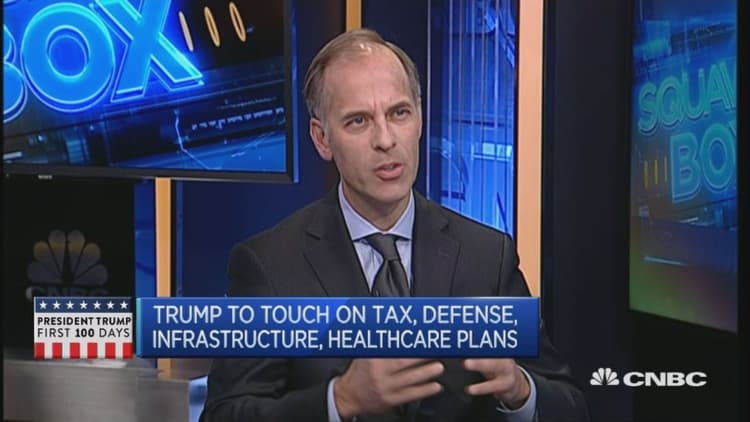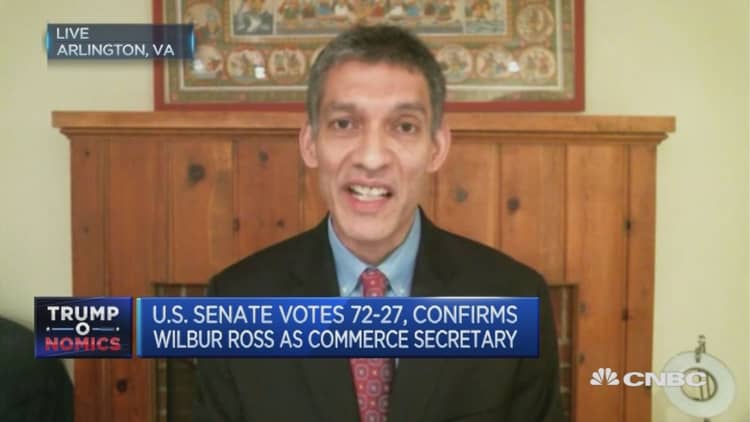China's government has a selection of policy tools that can respond to any potentially hostile trade or economic policies by US President Donald Trump, said Li Daokui, a prominent economist and a former member of the Chinese central bank's monetary policy committee.
"The central government is prepared for Trump," Li told the South China Morning Post outside a meeting of the National People's Congress in Beijing. "What's important is not what Trump says, but what his team says. The government has regular communications" with officials of the Trump administration, he said.
Any US protectionist economic measures or trade sanctions can be responded in kind, Li said.
The Chinese government can also apply pressure on American businesses in China, such as last December's fine on General Motors Co.'s Chinese venture, he said.
More from the South China Morning Post:
From tea to soybeans, trade inextricably links China and the US
Globalisation's not dead, it just has a new powerhouse – Asia
China's 'Two Sessions': economy on agenda, Trump on hidden agenda
SAIC General Motors Corp, a venture with China's largest carmaker producing Cadillac, Buick and Chevrolet vehicles in Shanghai, was fined 201 million yuan (US$29 million) on December 23 last year. The venture had pursued monopolistic pricing with dealers, according to a report by state broadcaster CCTV, citing Shanghai's antitrust authority.

The fine, equivalent to 4 per cent of the 2015 sales of the venture's Cadillax SRX, Chevrolet Trax and Buick Excelle models, would hardly cause a dent in General Motors' China business. The Detroit-based carmaker reported a 2015 operating profit of US$2.1 billion in China.
Still, the timing of the fine underscored China's resolve to use economic tactics for political ends. It came a week after President Elect Trump questioned why the US should continue to observe the so-called "One China" policy -- a cornerstone of Sino-US relations that China considers sacrosanct -- unless Beijing is willing to concede on policies that obstruct American interests.
Many US companies from aircraft maker Boeing Co., to iPhone producer Apple Inc, to coffee purveyor Starbucks Inc. depend on the world's most populous market for a substantial part of their global sales and growth. The China market makes up more than a third of General Motors' global sales.
American businesses will be increasingly vulnerable to the Chinese government's ire, if Sino-US relations take a turn for the worse.

Qualcomm Inc, the San Diego-based supplier of chip sets for smartphones, was fined US$975 million in February 2015 for breaching Chinese antitrust rules. That's the highest fine in China's corporate history, following a 14-month long investigation into Qualcomm's anti-competition practices.
To the stick in China's economic tool kit, Chinese premier Li Keqiang is offering carrots to neutralise any potentially hostile US policies, pledging to promote worldwide economic cooperation and defend global trade.
China will "forcefully optimise business environment for foreign investors," lower the barriers to entry in services, manufacturing, mining and allow foreign companies to raise funds in China's onshore equity and bond markets, Li said in his annual work report to the Chinese parliament.
Continuing the trend of deregulation and easing in red tape, China's central government will give local authorities the mandate to offer their own preferential policies, subsidies and incentives to woo foreign investors, Li said.
"China's doors will only open wider, and China will continue to be the most attractive destination for foreign investments," the premier said.

